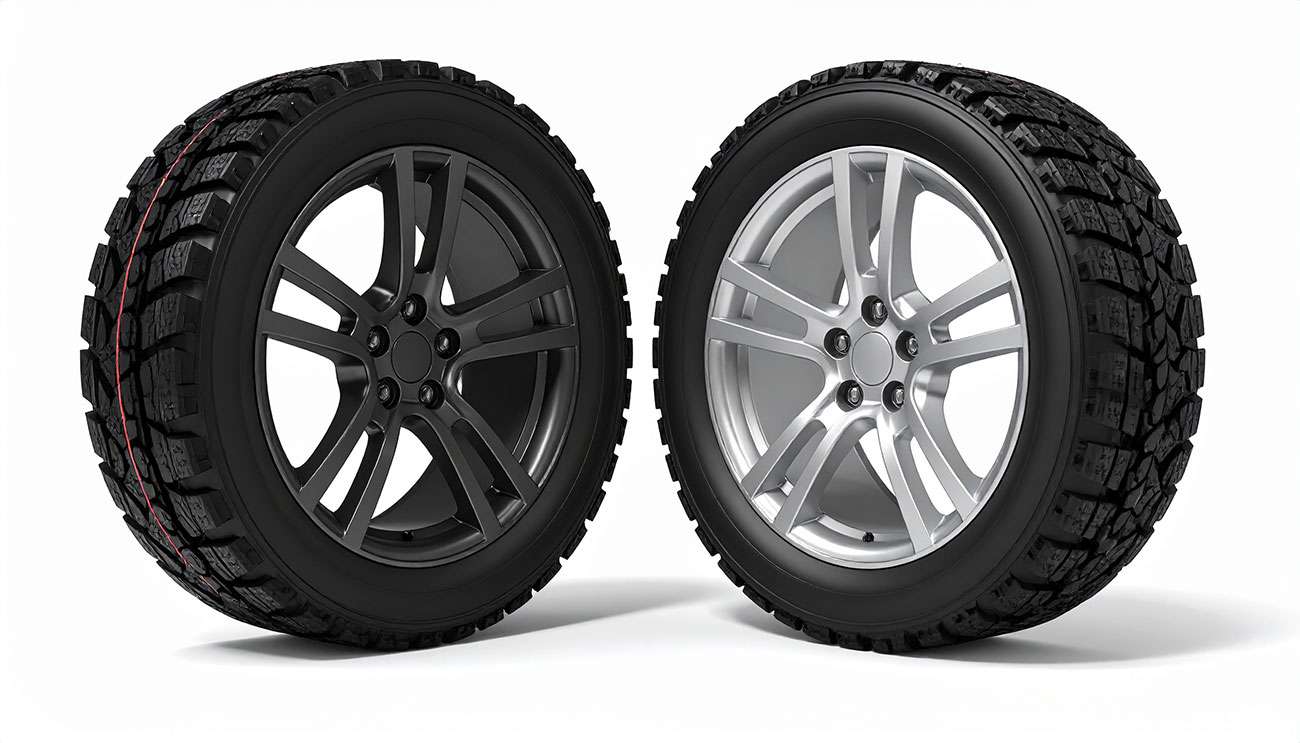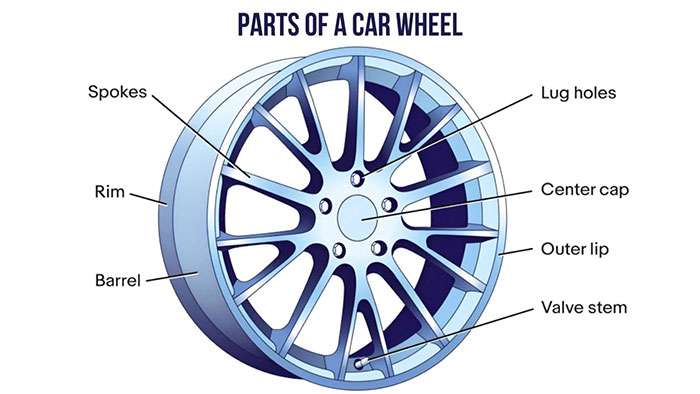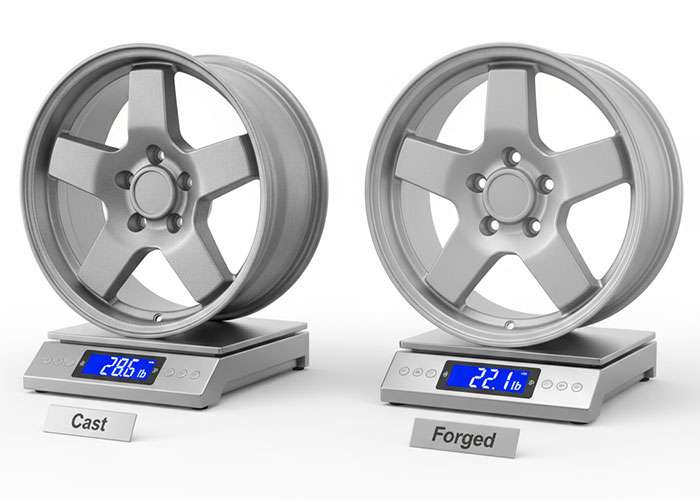
What materials are off-road wheels made of? This question matters when you're serious about off-road performance. Off-road wheels come in two main materials - aluminum alloys and steel. Each material delivers different advantages for tackling tough terrain.
At Performance Plus Tire, we carry the best selection of off-road wheels made from both materials at the lowest prices. Understanding wheel material makes a real difference in how your vehicle performs and holds up to punishment. Steel wheels provide incredible strength and durability, making them perfect for rock crawling and heavy-duty applications. Off road aluminum wheels have become popular because they handle rough conditions without weighing down your vehicle. Forged aluminum wheels offer the ultimate combination - exceptional strength with lightweight construction.
Most off-road wheels range from 15 to 20 inches in diameter, with widths from 7 to 12 inches. Your specific off-roading style determines which material works best for your needs. Steel wheels remain the most budget-friendly choice for your 4×4, while forged wheels have taken over the wheel supply chain because they're created by compressing aluminum under extreme pressure.
We'll break down the materials used in off-road wheels, compare their strengths and weaknesses, and help you choose the right option for your off-roading adventures and budget.

Image Source: The Engineering Choice
Off-road wheels face conditions that would destroy regular street wheels. The material you choose directly impacts durability, weight, and how your vehicle performs when the terrain gets tough.
Off-road wheels come in two main materials: steel and aluminum alloys. Steel wheels use an iron and carbon alloy, while aluminum wheels typically blend aluminum with nickel. These different materials suit various off-road disciplines. Some manufacturers experiment with exotic materials like carbon fiber for specialized applications, though these remain uncommon for typical off-roading.
Your wheel material determines how well your vehicle handles challenging terrain. Weight differences are significant - steel wheels weigh approximately 2.5-3 times more than comparable aluminum options. This extra unsprung weight affects acceleration, braking performance, and fuel efficiency. Material choice also influences field repairability - important when you're miles from the nearest service station.
Steel wheels deliver exceptional durability and resist cracking under extreme conditions. When they do take a hit, steel wheels typically bend rather than break, making field repairs possible with basic tools. Their main disadvantage is significant weight.
Cast aluminum wheels are made by pouring molten aluminum into molds, creating a looser grain structure. This process makes them much lighter than steel while keeping costs lower than forged options. You get better fuel economy and handling as a result. The casting process does make them more prone to cracking under extreme impacts.
Forged aluminum wheels represent the premium choice, created by applying intense pressure to aluminum. This creates a refined grain structure that aligns for superior strength. The process delivers exceptional strength-to-weight characteristics. Forged wheels outperform cast alternatives in extreme conditions, but cost significantly more. Their lightweight construction improves suspension performance and reduces unsprung mass.
Each material offers different trade-offs between durability, weight, cost, and appearance that need to match your specific off-road activities.
Steel wheels deliver exceptional toughness for serious off-road adventures. These wheels show remarkable characteristics that make them valuable for specific off-road scenarios.
Steel wheels excel in durability and resilience. When you hit harsh impacts, steel typically bends instead of cracking. This flexibility gives off-road enthusiasts a significant advantage since a bent steel wheel can often be hammered back into shape during trail emergencies. Steel wheels are nearly impossible to crack without tremendous force, making them reliable for remote expeditions. Their field repairability becomes crucial when you're traveling far from service stations - a dented steel rim can usually be fixed with basic tools, preventing a stranded situation.
Not all steel wheels are heavier than aluminum alternatives. Mopar steel wheels weigh 24.85 lbs compared to similar-sized Method aluminum wheels at 27.8 lbs. However, most steel wheels typically weigh about 78 lbs - approximately 30 pounds heavier than standard aluminum options. This added weight affects vehicle dynamics in several ways:
Reduces fuel efficiency and overall acceleration
Creates more unsprung mass, impacting suspension performance
Provides better winter traction due to the additional mass
The weight difference often becomes less significant than tire selection when determining fuel consumption.
Corrosion presents the greatest long-term challenge for steel off-road rims. Salt, harsh chemicals, and moisture create a corrosive environment that attacks exposed wheel surfaces. Once paint gets chipped or scratched, steel begins to rust - particularly problematic in regions using road salt. Several protective measures can help:
Modern steel wheels often feature advanced coatings like Accuride's Steel Armor™, which uses a proprietary three-phase protection process that can extend wheel life by up to 24 months (approximately 200,000 additional miles) before refinishing becomes necessary. Regular maintenance, including periodic sanding of rust spots and repainting, keeps steel wheels in excellent condition for years.

Aluminum alloys dominate today's off-roading wheel market, available in two distinct manufacturing methods that directly affect performance and durability.
Cast aluminum wheels start as molten metal heated to approximately 1200°F before being poured into wheel-shaped molds. Two primary casting methods exist - gravity casting and low-pressure casting. Gravity casting relies on Earth's gravitational pull to fill molds, which can result in more porous metal. Low-pressure casting, the more common approach today, injects aluminum under positive pressure, creating denser material with fewer inconsistencies. This affordable production method accounts for approximately 90% of Original Equipment wheels on vehicles today.
Cast aluminum provides significant weight savings over steel while keeping costs reasonable for most off-road enthusiasts. The casting process makes these wheels lighter and easier on your suspension components.
Forged wheels begin with solid blocks of aluminum (typically aerospace-grade 6061-T6) subjected to extreme pressure—often 8,000-10,000 tons. This intense compression changes the aluminum's internal structure completely, aligning grain patterns into a tight, uniform formation. After shaping, these wheels undergo heat treatment—heated to high temperatures then rapidly cooled—which enhances their durability even further. The result? Wheels approximately 25-30% lighter than comparable cast alternatives while delivering superior strength.
The forged process creates the strongest aluminum wheels available, making them ideal for serious off-road applications where both weight savings and durability matter.
The main advantage of forged aluminum over both cast aluminum and steel comes from unsprung weight reduction—critical for off-road performance. Aluminum also dissipates heat three times more effectively than steel, extending tire and brake life. Impact response differs significantly—cast aluminum generally cracks under extreme stress, whereas forged aluminum typically bends without breaking. Steel maintains an advantage in field repairability, since bent aluminum wheels require specialized equipment to restore.
When choosing between aluminum and steel, consider your typical terrain and repair capabilities. Aluminum excels in performance applications, while steel wins for remote expeditions where field repairs matter most.
Choosing the right off-road wheel material comes down to matching performance characteristics with your specific terrain and driving style. Browse high-performance off-road wheel options from top manufacturers at Performance Plus Tire.
Steel wheels typically weigh 2.5-3 times more than comparable aluminum options. When you replace 15-inch steel wheels with aluminum alternatives, you save 3-4 pounds per wheel, while 17-18 inch replacements can reduce weight by up to 10 pounds per wheel. This weight reduction directly impacts acceleration, braking response, and fuel economy.
Rock crawling demands wheels that can take punishment. Steel wheels work best here because they bend rather than crack under impact. Forged wheels with reinforced beads handle technical terrain exceptionally well when you need maximum strength. For mudding applications, aluminum's superior heat dissipation - three times better than steel - keeps brakes cooler when heat builds up quickly.
Steel wheels offer the most budget-friendly entry point. Forged wheels cost significantly more but deliver the best strength-to-weight performance. Cast aluminum provides a practical middle ground - reasonable cost with acceptable durability for most recreational off-roading.
Match your wheel material to your primary terrain. Extreme rock crawling calls for steel wheels because you can repair them in the field and they resist impact damage. Mixed-terrain driving works well with cast aluminum when weight savings matter for handling and fuel economy. High-speed desert running demands forged aluminum where both strength and weight reduction are critical. Don't forget beadlock options for technical terrain requiring very low tire pressures.
Selecting the right material for your off-road wheels depends on your specific driving style and terrain challenges. Steel wheels work best when durability and field repairability matter most, particularly for rock crawling enthusiasts who venture into remote areas. Cast aluminum offers a smart middle ground, balancing weight savings with affordability for recreational off-roaders. Forged aluminum, though more expensive, delivers unmatched strength-to-weight benefits that serious desert racers and performance-focused drivers need.
Weight affects vehicle dynamics - lighter wheels improve acceleration, fuel economy, and suspension performance. Durability matters equally when tackling punishing terrain. Understanding the trade-offs between steel's toughness and aluminum's weight advantages helps you make the right choice.
Before making your wheel purchase, evaluate your typical driving conditions, repair capabilities, and budget. Consider factors beyond material alone, such as proper sizing, bead design, and compatibility with your vehicle. Performance Plus Tire offers an extensive selection of off-road wheels crafted from all these materials to match your specific requirements.
The ideal off-road wheel balances strength, weight, and cost according to your needs. Whether you choose steel's legendary toughness, cast aluminum's practical balance, or forged aluminum's premium performance, selecting wheels made from the right material ensures your off-road adventures continue without problems. When you're challenging tough terrain, your wheels must handle whatever obstacles you encounter.
Ready to upgrade your off-road wheels? Our expert team is ready to help you find the perfect match for your vehicle, ensuring both performance and durability for your off-road adventures.
Understanding off-road wheel materials is crucial for optimizing your vehicle's performance and durability across different terrains and driving conditions.
• Steel wheels excel in extreme durability and field repairability, bending rather than cracking under impact, making them ideal for rock crawling and remote expeditions.
• Cast aluminum wheels offer the best balance of weight savings and affordability, weighing 2.5-3 times less than steel while providing adequate strength for recreational off-roading.
• Forged aluminum wheels deliver premium performance with 25-30% weight reduction compared to cast alternatives and superior strength-to-weight ratios for high-speed desert running.
• Material choice significantly impacts vehicle dynamics - lighter aluminum wheels improve fuel economy, acceleration, and suspension performance through reduced unsprung weight.
• Match your wheel material to terrain type: steel for technical rock crawling, cast aluminum for mixed terrain, and forged aluminum for high-performance applications where both strength and weight matter.
The key is balancing durability, weight, cost, and repairability based on your specific off-roading style and the terrain you'll encounter most frequently.
Off-road wheels are primarily made from three materials: steel, cast aluminum, and forged aluminum. Each material offers unique benefits for different off-roading scenarios.
Steel wheels are extremely durable and easier to repair in the field, making them ideal for rock crawling. Aluminum wheels, both cast and forged, are lighter, which improves fuel efficiency and handling, but may be more prone to cracking under extreme impacts.
Forged aluminum wheels offer the best strength-to-weight ratio. They are about 25-30% lighter than cast aluminum wheels while maintaining superior strength, making them excellent for high-performance off-road applications like desert racing.
The material of off-road wheels significantly impacts vehicle dynamics. Lighter wheels (typically aluminum) improve acceleration, fuel economy, and suspension performance due to reduced unsprung weight. Heavier wheels (usually steel) can provide better traction in some conditions but may reduce overall efficiency.
For extreme rock crawling, steel wheels are preferred due to their durability and field repairability. Cast aluminum wheels are suitable for mixed-terrain driving, offering a balance of weight savings and affordability. Forged aluminum wheels excel in high-speed desert running where both strength and weight reduction are critical.